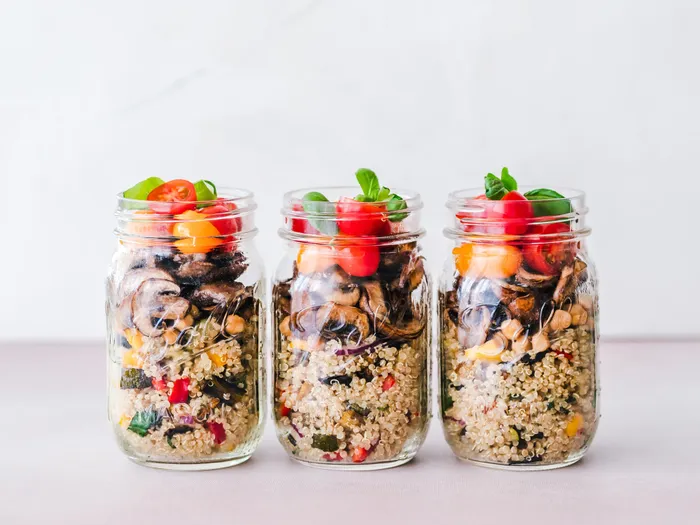Under pressure: 3 ways to save money by meal prepping

Meal prepping helps you save time and money by allowing you to plan and cook meals in advance. Picture: Ella Olsson
One of the best ways to stretch your grocery budget is by meal prepping. While the idea of planning every meal in advance can feel overwhelming, there are several ways to make it easier – and less expensive.
Meal prepping helps you save time and money by allowing you to plan and cook meals in advance. With a few simple tricks, meal prepping can help take the stress and hassle out of getting dinner on the table while also keeping your food budget in check.

What is meal prepping?
Meal prepping is an organised way to prepare your meals ahead of time so that you will not have to worry about cooking every single day. Meal prepping allows you to plan your meals and prepare enough for the whole week in advance.
Rather than having to wake up earlier to make your lunch before you leave home every day, you can cook lunch for the entire week. For some people, this not only saves time, money, and energy but is a way to maintain a healthy diet.
Try some of these money-saving cooking tips if you are not sure how to save money when meal prepping.
Don’t overbuy
Buying too much food can lead to food waste, which can cancel out any food planning savings. If you are new to meal planning, you may need less food than you think.
The first few times you prepare meals, I would advise buying less than you think you need and making another trip to the grocery store if you need more. After a few weeks, you will get a better handle on what you actually need.

Designate a leftover day
Some of us tend to overstock our refrigerators, forgetting about some of the older or unused items at the back. Once a week, designate a day to eat your leftovers, take stock of the ingredients you have, and plan future meals.
Cook and store your meals
You have got the menu and ingredients ready – now it is time to review recipes, create a cooking timeline, and get down to business. Begin by checking your recipe list is complete.
After that, assess how much time each dish will take so you can plan your cook-up accordingly. For instance, if one meal requires an hour in the oven, use this opportunity wisely by prepping other dishes simultaneously.
Once you have an idea of how long everything will take, create a cooking schedule that starts with the longest-cooking items and ends with the quickest ones. That way, you will have plenty of time to get something on the table, even if there is a delay along the way.
Finally, do not forget to store your meals in airtight containers and label them with the date they were cooked. That way, you can always tell if something is too old to eat or if it is safe to enjoy.